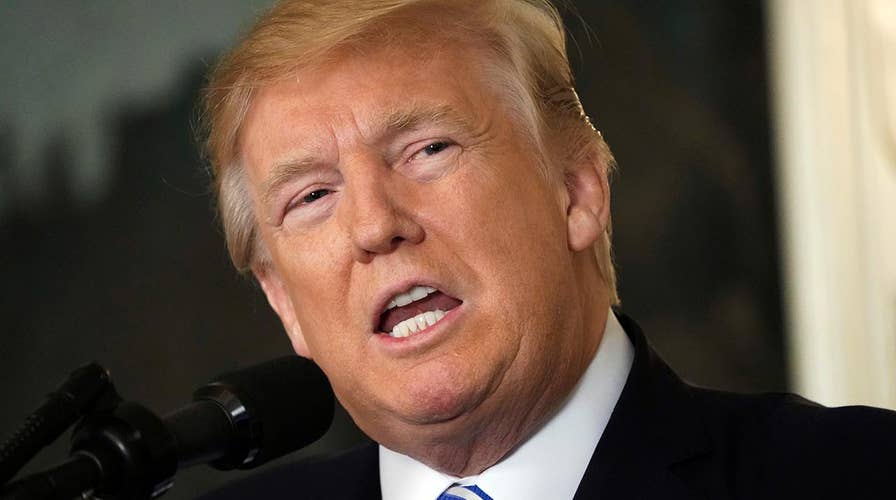Trump heads to Hill to sell tax reform to Senate Republicans
John Roberts reports from the White House on the push to secure 50 votes.
Congress returns Tuesday from Thanksgiving recess, giving Capitol Hill roughly 15 days before leaving town until January to get a string of key legislative items, most notably tax reform, to President Donald Trump’s desk by the end of the year.
Senate Republicans are considering a trigger that would automatically increase taxes if their sweeping legislation fails to generate as much revenue as they expect. It’s an effort to gain support from deficit hawks who worry that tax cuts for businesses and individuals would add to the nation’s already mounting debt.
The effort comes as a second Republican senator, Steve Daines of Montana, announced Monday that he opposes the tax bill in its current form. Previously, Sen. Ron Johnson, R-Wis., said he opposed the bill, leaving Senate Republicans no room for error as they aim to vote on the bill this week.
Both senators complained that the tax bill favors large corporations over small businesses.
In a Monday morning tweet, the president wrote, “With just a few changes, some mathematical, the middle class and job producers can get even more in actual dollars and savings.”
Trump has suggested he'd be open to making unspecified changes to the way millions of “pass-through” businesses are taxed, a sticking point for some lawmakers.
Republicans have only two votes to spare in the Senate, where they hold a 52-48 edge and anticipate Vice President Mike Pence breaking a tie, if needed.
Utah Sen. Orrin Hatch said Senate Republicans “intend to get to 50” votes in the chamber. After meeting with Trump on Monday, Hatch called for Senate Democrats to “get off their duffs” and work with Republicans on the bill.
Trump is set to meet Tuesday with top Republican and Democratic congressional leaders, which could edge the government closer to a year-end bipartisan fiscal deal — or a federal shutdown.
Trump will meet with House Speaker Paul D. Ryan, R-Wis., Senate Majority Leader Mitch McConnell, R-Ky., House Minority Leader Nancy Pelosi, D-Calif., and Senate Minority Leader Charles E. Schumer, D-N.Y., to discuss short-term plans as government funding is scheduled to dry up on Dec. 8.
Fights over immigration and health care also are crowding the agenda, as The Hill points out.
At present, Congress may spend no more than $549 billion for defense programs and $516 billion for non-defense programs next year, a cut from current levels, The Washington Post reports. The Trump administration is looking to increase defense spending to more than $600 billion, while Democrats are demanding a dollar-for-dollar increase in non-defense spending.
The Associated Press contributed to this report.





